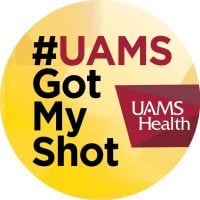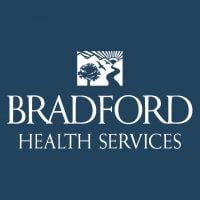Quapaw House CORT
Drug Rehab Center in Little Rock, Arkansas
Quapaw House CORT is an addiction treatment facility located in Little Rock, Arkansas that provides comprehensive drug rehab and mental health services on both an inpatient and outpatient basis, with personalized care plans and private insurance acceptance.
About Quapaw House CORT in Arkansas
Located in Little Rock, Arkansas, Quapaw House CORT is a substance abuse, drug addiction, alcoholism, and mental health treatment facility. Their mission is to provide comprehensive care to individuals struggling with addiction and support their journey towards sobriety. Quapaw House CORT offers various levels of care, including aftercare support, drug rehab, inpatient, and outpatient programs. They accept private health insurance, making their services accessible to a wider range of individuals seeking help. Affiliated with Quapaw House, this facility prioritizes the well-being and recovery of those suffering from substance abuse, drug addiction, alcoholism, and mental health issues.
Quapaw House CORT offers a range of services and treatment methods to address addiction and substance abuse effectively. Their programs focus on addressing the root causes of addiction and providing individuals with the tools and support they need to overcome these challenges. They offer aftercare support to help individuals maintain their sobriety beyond the initial treatment phase. Additionally, they provide both inpatient and outpatient levels of care, allowing individuals to choose the treatment approach that best suits their needs and circumstances. Through their drug rehab programs, Quapaw House CORT helps individuals develop coping mechanisms, build healthy relationships, and acquire essential life skills that support long-term recovery. Their facility is equipped to address not only substance abuse but also mental health concerns, ensuring holistic care for individuals seeking help.
Genders
Ages
Modality
Additional
Conditions and Issues Treated
Substance Abuse Treatment is important when getting sober, as it helps addicts learn the skills they need to live a clean life. There are many different kinds of recovery treatment, including but not limited to medication-assisted therapy, behavioral therapeutic approaches, self-help groups, and counseling. Each treatment has its benefits that help addicts recover.
Counseling can help addicts learn the skills they need to live sober lives. It can be used to treat underlying mental health issues, like depression or anxiety, that could lead to relapse. Counseling can also help people find work, deal with family problems, and learn to manage living without drugs.
Levels of Care Offered
This center offers a variety of custom treatment tailored to individual recovery. Currently available are Aftercare Support, Drug Rehab, Inpatient, Outpatient, with additional therapies available as listed below.
Inpatient treatment is a form of recovery used in drug rehab. Inpatient recovery offers individual therapy, groups, and family therapy to ensure that the addict has the best recovery possible. A variety of treatments are provided in this type of recovery, depending on what treatment the addict needs at that particular time.
The length of inpatient addiction treatment depends on the addict and their addiction. Inpatient rehabilitation can last anywhere from 30 days to 90 days, depending on how severe the drug abuse is. Inpatient rehab is a costly drug treatment, costing anywhere from $30k- to $60k. However, insurance often offers help in covering these costs.
Alcohol or drug addiction, or co-occurring disorders, are treated in an outpatient program. The patient must attend therapy and other programs at the facility but can return home each night.
Outpatient treatment allows recovering addicts to live at home while receiving addiction treatment. Outpatients can attend group sessions for a few hours per week. Outpatients may also continue to work full time and study/attend school without interruption if they choose.
The accomplishment of completing a drug or alcohol treatment program is just the first step. Once that is complete, aftercare support comes into play. This includes helping people adjust to life without substances outside of guidelines with assistance like getting sober living accommodations and career counseling and AA/NA programs for those who are struggling between sobriety or want continued help in maintaining it once they have completed their initial rehabilitation at an addiction facility.
Aftercare comprises services that help recovering addicts readjust to normal day-to-day activities while working on specific issues. These problems include psychiatric issues, family problems caused by substance abuse, continuing education pursuits if desired during rehab, etc. These can last up to one year+ depending on what’s needed most urgently upon completion of earlier stages.
Therapies & Programs
Different people react differently to various treatment options. Some drug rehabilitation centers offer individualized treatment that caters to the specific needs of a drug addict. The best treatment option varies on an individual depending on the type of drug abused, life history, medical condition of the person, social circumstances, and the environment they live in now.
When a person enters drug rehab, they usually have anti-drug associations such as withdrawal symptoms, stress, cravings, etc. The first step of drug rehab is to detoxify the body from any residual substances in it. Drug rehabilitation centers usually employ trained medical professionals to help in this process. Usually, the initial detoxification lasts for five days, where the person is monitored under close supervision.
Attending group therapy at Quapaw House CORT in , is a useful way for those seeking sobriety to realize they aren’t the only one going through it.
This is when a group of people on different recovery phases get together and talk about what they’re going through, their triggers, successes, and failures. This can include alternative types of therapies too! Group therapy may occur on an outpatient or inpatient basis with groups that have no pre-existing relationships outside the session, unlike support groups where everyone already knows each other beforehand.
Trauma therapy is a form of therapy used to help people process and understand past traumas. This can help struggling addicts, as many people turn to drugs or alcohol to mask the pain of their past. Trauma therapy can be done in several ways, such as through visualization, discussion, and writing down thoughts and feelings. The goal is to help the individual understand why they are having problems coping with certain situations and changing how they think and react to things. This is often done in tandem with other therapies to treat the underlying issues associated with addiction.
The idea behind trauma therapy is that while some people can experience traumatic events and not have lasting psychiatric symptoms, many others will. In these cases, memories get hidden from consciousness but continue to influence how the person processes and copes with things in their life. They may avoid situations that resemble what happened or become suddenly angry or irritated to a situation that reminds them of a past event. With the help of a therapist, people can go back over memories and experiences. This helps them understand why they are having problems coping with certain situations and changing how they think and react to things.
Cognitive Behavioral Therapy is a type of psychotherapy that helps people address the thoughts and behaviors that may have led to their addiction. It also helps change negative thoughts into positive ones and promotes healthy communication between addicts and those around them. CBT is an efficient treatment for individuals suffering from all sorts of addictions.
Cognitive Behavioral Therapy (CBT) focuses on the underlying thoughts and behaviors that caused the problem of addiction in the first place and may cause a relapse. Negative feelings are common in drug abuse disorders, but they can lead to co-occurring disorders if not recognized. CBT involves strategies that help to change the behavior pattern by restructuring negative thoughts into positive ones. It helps to remove these feelings, and it provides long-term benefits. Also, CBT promotes self-awareness, self-control and can be administered as a mono-therapy or as part of combination therapy.
Payment Options Accepted
For specific insurance or payment methods please contact us.
Is your insurance accepted?
Ask an expert, call (888) 674-0062
Quapaw House Associated Centers
Discover treatment facilities under the same provider.
- Quapaw House - Hot Springs in Hot Springs, AR
- Quapaw House - Adult Residential and Medical Detox in Hot Springs National Park, AR
- Quapaw House - Outpatient in Hot Springs National Park, AR
- Quapaw House - Adolescent Treatment in Hot Springs National Park, AR
- Quapaw House - Hot Springs National Park in Hot Springs National Park, AR
Learn More About Quapaw House Centers
Additional Details
Specifics, location, and helpful extra information.
Little Rock, Arkansas 72209 Phone Number(501) 686-9393 Meta DetailsUpdated November 25, 2023
Staff Verified
Quapaw House CORT Patient Reviews
There are no reviews yet. Be the first one to write one.
Little Rock, Arkansas Addiction Information
Arkansas has one of the highest rates of substance abuse and addiction in the nation for drug overdoses. Methamphetamines and prescription opioids are by far the most widely abused drugs in the state. Despite the high rates, Arkansas ranked only 25th in the for drug overdose deaths in 2013.
In Little Rock, Arkansas, there are approximately 1,000 people who are admitted to treatment centers for addiction to drugs or alcohol every year. There were 2,721 admissions to publicly funded alcohol and drug treatment programs in Little Rock in 2016. The most commonly reported drugs of abuse were methamphetamine (42%), heroin (26%), and alcohol (22%). Some popular treatment options include inpatient rehab, outpatient rehab, and detox centers.
Treatment in Nearby Cities
- Pocahontas, AR (134.1 mi.)
- Mulberry, AR (111.8 mi.)
- Searcy, AR (52.4 mi.)
- Arkadelphia, AR (55.8 mi.)
- Eureka Springs, AR (142.3 mi.)
Centers near Quapaw House CORT
The facility name, logo and brand are the property and registered trademarks of Quapaw House CORT, and are being used for identification and informational purposes only. Use of these names, logos and brands shall not imply endorsement. RehabNow.org is not affiliated with or sponsored by Quapaw House CORT.








